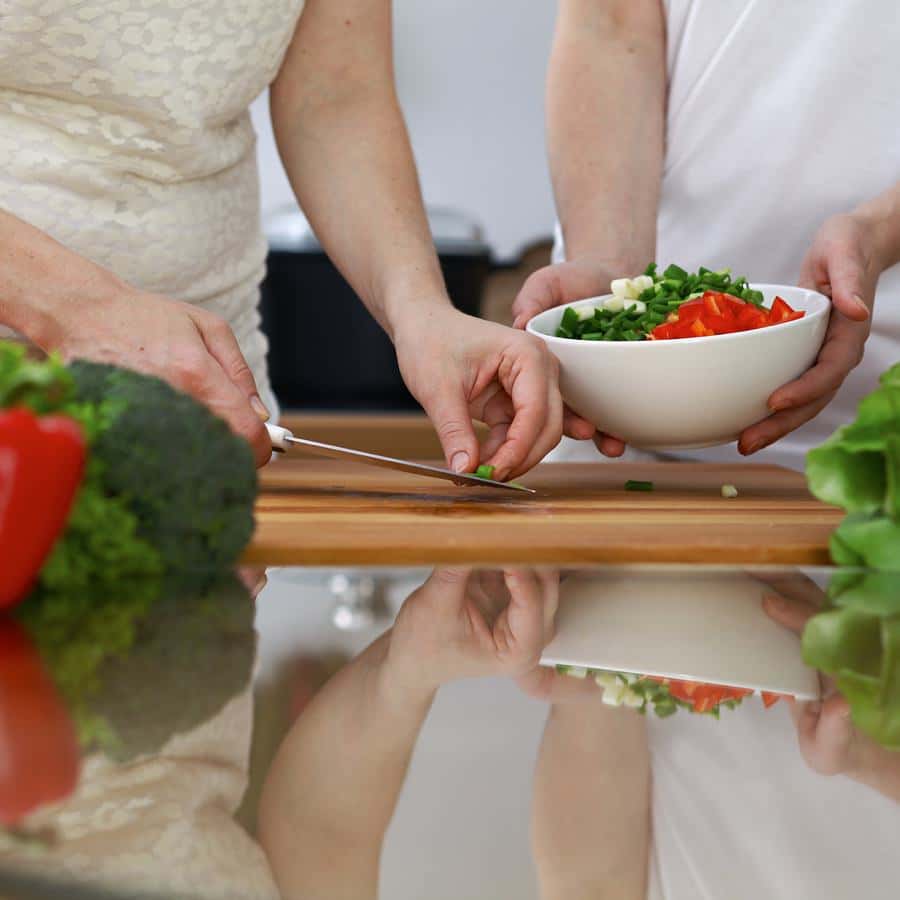
Your mother was right when she urged you to eat your vegetables. And if she took her own advice and consumed extra vegetables, she was lowering her own risk of breast cancer.
What Is the Value of Extra Vegetables?
More than 180,000 women participated in the Nurses’ Health Study and the Nurses’ Health Study II. They provided detailed dietary and health information every few years for more than two decades.
During that time, more than 10,000 of the volunteers developed invasive breast cancer. The epidemiologists running the study found that those who consumed at least five and a half servings of fruits and vegetables a day were 11 percent less likely to be diagnosed with breast cancer than those who ate fewer than two and a half servings (International Journal of Cancer, July 6, 2018). The effect was most noticeable with aggressive breast cancer.
Which Extra Vegetables Pack a Punch?
All vegetables are beneficial. Crucifers like Brussels sprouts, cauliflower and kale were especially helpful, along with sweet potatoes, winter squash and other orange veggies. Other cruciferous vegetables include bok choi, broccoli, cabbage, collards, kohlrabi, mustard greens and turnips.
This is not the first research to flag extra vegetables for their potential to reduce the risk of breast cancer. A few years ago, scientists identified vegetables rich in luteolin as beneficial against breast cancer.
Luteolin Lowers Risk of Breast Cancer:
Scientists have found that a natural compound found in many plants can help lower this likelihood (Springer Plus, Aug. 22, 2015). Luteolin is found in broccoli, celery, green peppers, parsley and thyme.
Other studies confirm the importance of luteolin in the development of breast cancer (Cell Physiology and Biochemistry, 2015). Test tube research on breast cancer cells found that exposing them to this natural compound reduces their tendency to behave like stem cells. Since stem-cell like behavior is a characteristic of cancer cells, this is promising. Recent research demonstrates that luteolin can suppress metastasis of breast cancer cells (Cook, Breast Cancer, June 12, 2018).
More Studies on Luteolin Are Needed:
Clinical trials to see whether administering luteolin orally or through injections are ahead. In the meantime, there’s certainly no harm in adding extra parsley or celery to the diet. Clearly, women who consume extra vegetables are doing themselves a favor.

